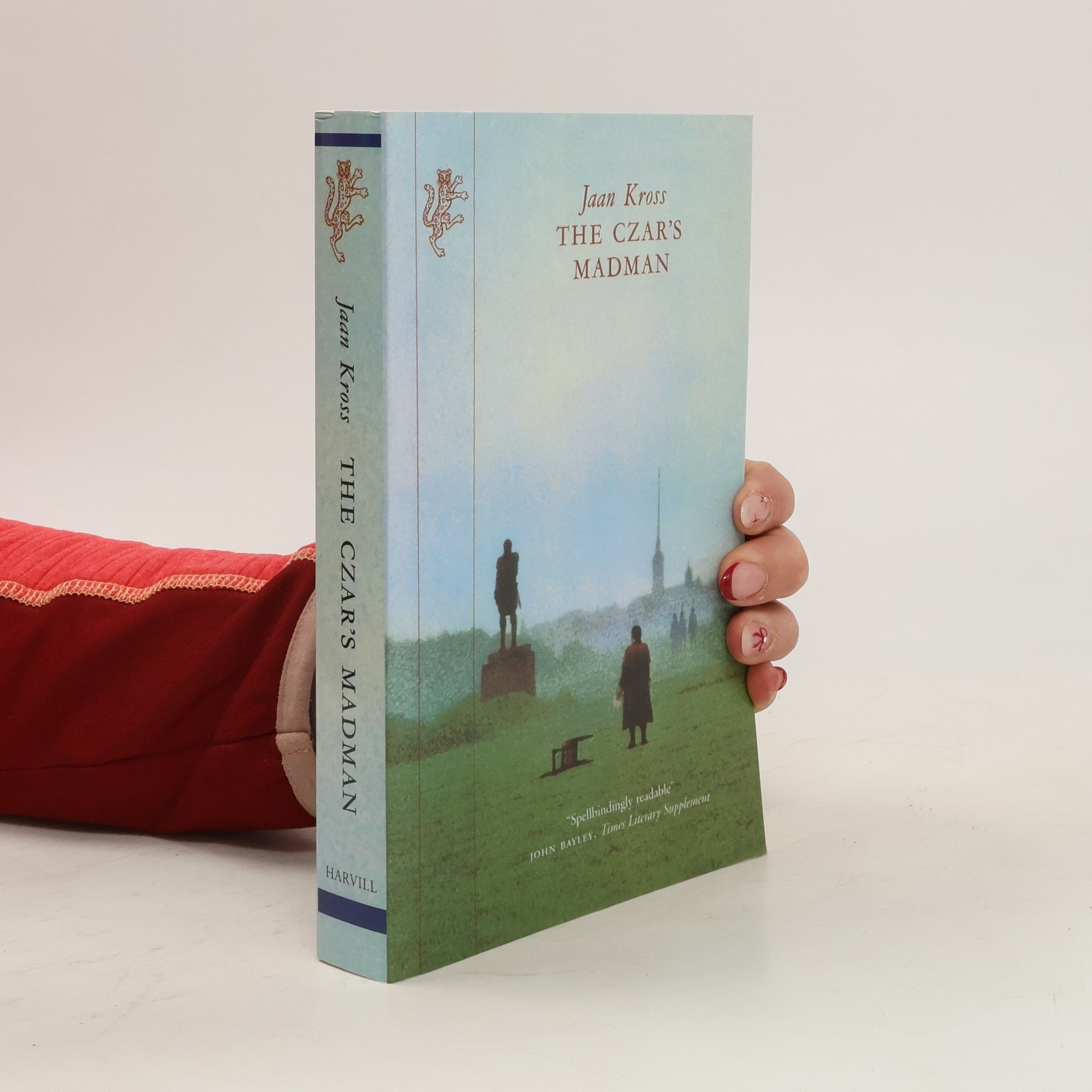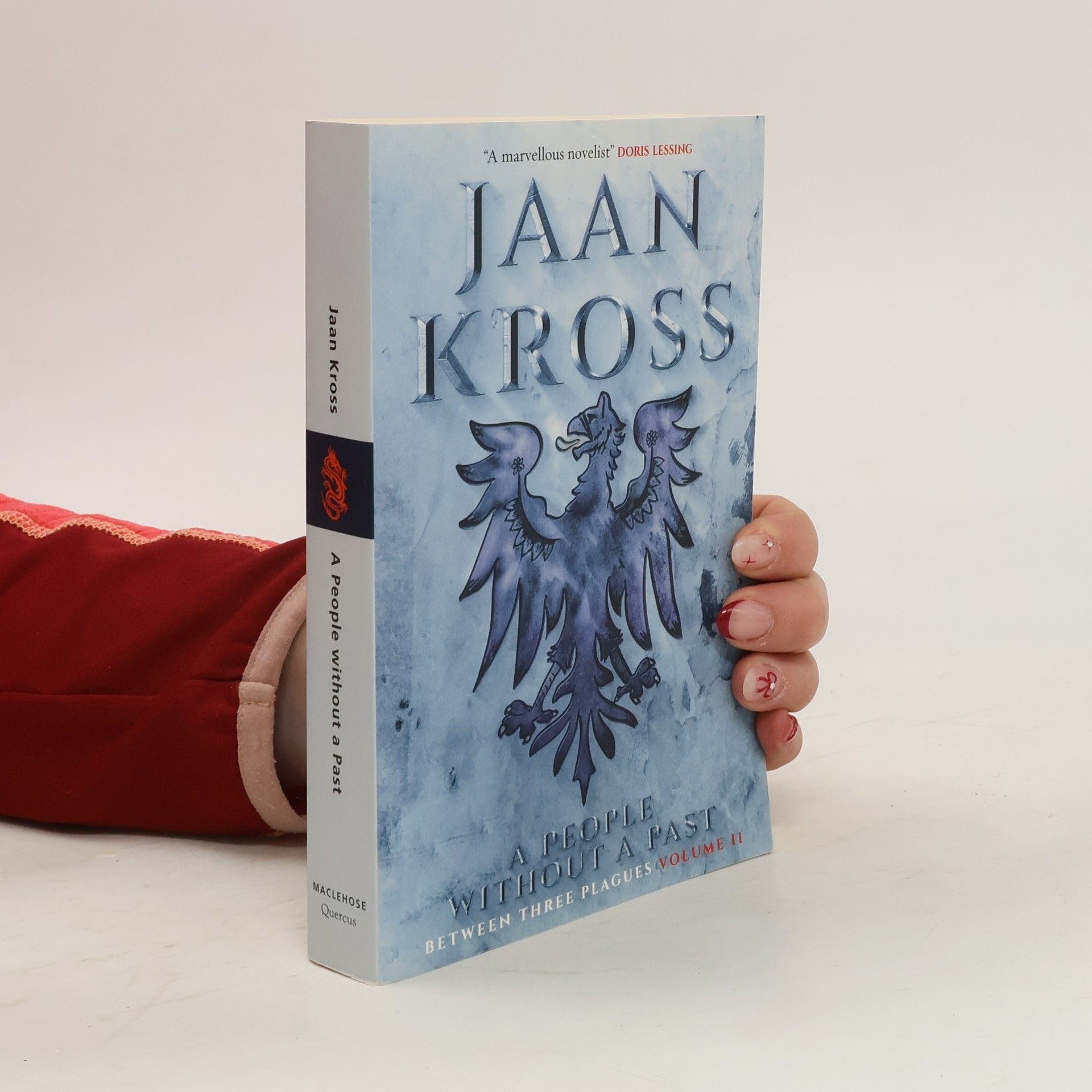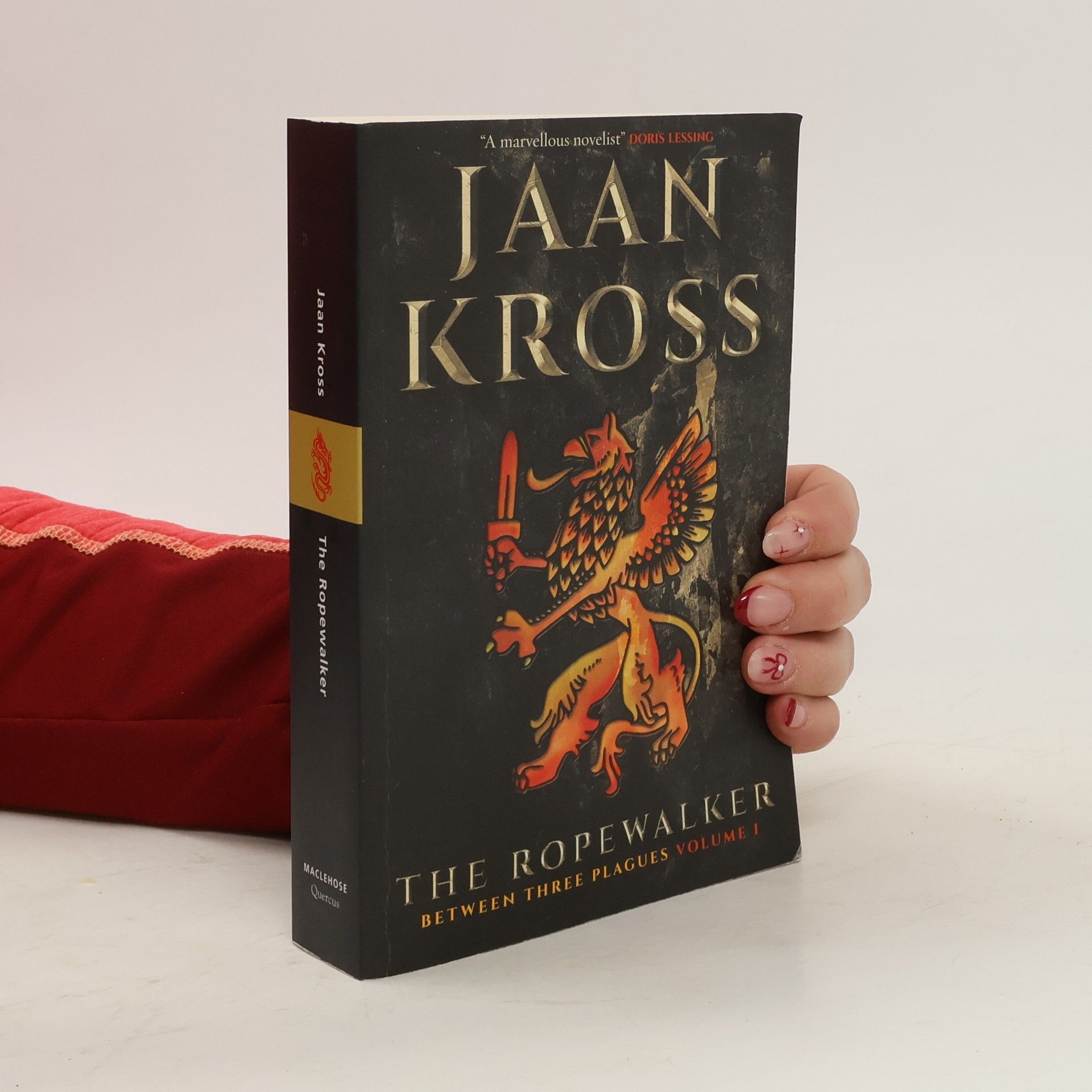A Book of Falsehoods
- 400 pages
- 14 hours of reading
The story of a man who rose from peasant stock to become Estonia's most famous medieval chronicler - The third novel in a historical trilogy by Estonia's most famous writer
Jaan Kross, Estonia's most renowned and translated author, crafts historical novels centered on the moral dilemmas of his characters. His protagonists, often on the fringes of society, grapple with complex ethical questions across Estonian history. Initially a poet and translator, Kross revitalized Estonian poetry with new directions after his return from Russian labor camps. His prose work progressively approaches contemporary times, drawing from personal experience and a profound engagement with the past.







The story of a man who rose from peasant stock to become Estonia's most famous medieval chronicler - The third novel in a historical trilogy by Estonia's most famous writer
Roman
Der Roman "Gegenwindschiff" von Jaan Kross, dem bedeutendsten estnischen Schriftsteller der zweiten Hälfte des 20. Jahrhunderts, erschien 1987. Hauptperson der Erzählung, die Kross nicht als Biographie, sondern allenfalls als "romanisierte Biographie“ verstanden wissen will, ist der verschrobene Tüftler und Erfinder Bernhard Schmidt. Als Jugendlicher verliert Schmidt beim Experimentieren mit Schießpulver seine rechte Hand. Trotzdem perfektioniert er die manuelle Fertigung von Linsen und Spiegeln für astronomische Geräte und erfindet ein völlig neuartiges Spiegelteleskop, das in der Astrofotografie erfolgreich verwendet wird. Auch andere Erfindungen ersinnt dieser kreative Geist, der ab 1926 in der Sternwarte von Hamburg-Bergedorf arbeitete: das titelgebende "Gegenwindschiff" ist ein gänzlich anders geartetes Segelschiff, das besonders gut im Gegenwind Fahrt aufnimmt
The story of a man who rose from peasant stock to become Estonia's most famous medieval chronicler - The second novel in a historical trilogy by Estonia's most famous writer
Roman
In Estland gehört dieser Roman des bedeutendsten Gegenwartsautors des Landes zum Kulturgut. Protagonist des Romans ist der junge Jaak Sirkel, der das Wikmannsche Gymnasium in Tallinn besucht, eine der anerkanntesten Lehranstalten Estlands. Es ist die Zwischenkriegszeit, die goldene Zeit aller drei baltischen Staaten. Während sich die Esten in dieser Phase an der Unabhängigkeit ihres Landes erfreuen, ist die Schulzeit der Zöglinge ereignisreich und voll der Herausforderungen des Erwachsenwerdens. Übermütige Schulstreiche, harsche Auseinandersetzungen mit Lehrern und Eltern und erste zarte Liebesgeschichten bestimmen ihren Alltag. Der impulsive Jaak und sein eher stiller Freund Riks verehren beide Virve, die reizende Zwillingsschwester eines Klassenkameraden – aus Freunden werden Rivalen. Die unbeschwerte Zeit endet jäh, als der Krieg beginnt. Die muntere kleine Gesellschaft wird in alle Himmelsrichtungen zerstreut. Jaak macht sich verzweifelt auf die Suche nach Virve … Wikmans Zöglinge ist eine lebendige, anekdotenreiche Schulgeschichte, eine Art Feuerzangenbowle auf großer literarischer Bühne. Endlich erscheint einer der letzten großen historischen Romane von Jaan Kross in deutscher Sprache.
The first part in an epic historical trilogy - The Estonian answer to Wolf Hall - by the nation's greatest modern writer Jaan Kross's trilogy dramatises the life of the renowned Livonian Chronicler Balthasar Russow, whose greatest work described the effects of the Livonian War on the peasantry of what is now Estonia. Like Hilary Mantel's Thomas Cromwell, Russow is a diamond in the rough, a thoroughly modern man in an Early Modern world, rising from humble origins to greatness through wit and learning alone. As Livonia is used as a political football by the warring powers of Russia, Sweden, Poland and Lithuania, he continues to climb the greasy pole of power and influence. Even as a boy, Russow has the happy knack of being in the right place and saying the right thing at the right time. He is equally at home acting as friend and confidante to his ambitious patron and as champion for his humble rural relatives. Can anything halt his vertiginous rise? Like most young men he is prey to temptations of the flesh . . .
Die Liebe des jungen Hofmeisters zu der blonden Magdalena und die Rache eines ehemaligen Lakaien an der Herrin von Wesenberg sind die treibenden Kräfte in diesem politischen Drama. Es spielt in der Zeit der Aufklärung, weist aber eindeutige Parallelen zur Geschichte unseres Jahrhunderts auf. Einer der schönsten historischen Romane des großen Autors aus Estland, ein anrührendes menschliches Drama, klar und einfühlsam erzählt.
Reval in der zweiten Hälfte des 16. Jahrhunderts: Balthasar Rüssow, eine authentische historische Figur, lebt als unbestechlicher Verfasser einer Chronik von Lyffland in seiner bewegten Zeit so lange in bürgerlichem Ansehen, bis sein Wahrheitsanspruch mit den Interessen der Obrigkeit kollidiert. Eines Tages lädt Rüssow selbst einen Spitzel zu sich ins Haus, der ihn nicht nur ans Messer liefern will, sondern auch ein Auge auf seine Frau geworfen hat. Jaan Kross erzählt Rüssows Geschichte als eindringliche Parabel über die Gefährdungen der Freiheit durch Zensur, Unterdrückung und Willkürherrschaft.